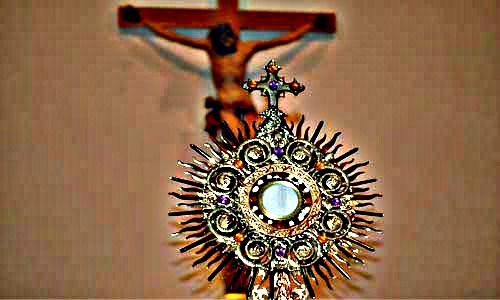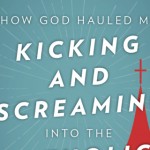 The grace of God often comes to a person in the midst of paradox and mystery.
The grace of God often comes to a person in the midst of paradox and mystery.
This is perhaps the truth that many missed when they read part of my story of return to the Church. In short, I was an atheist, fallen-away Catholic involved in serious sin who stumbled into Mass one day and received the Eucharist. This moment was the start of my journey back to the Church and eventually into religious life.
Certainly, a reason to celebrate right?
Unfortunately, many reacted to my story of coming home by chastising me or by suggesting that it would have been better if only I had converted in another way, under more perfect circumstances. “If someone had met you at the door and told you not to receive, surely that would have been better,” some opined. However, many people also shared with me that their experience was similar to my own.
As many of you understood, I was simply sharing my journey. I was clear that I now know I should not have received the Eucharist under the circumstances I did. But at the same time, when I entered the church that day, I was an ignorant fool stumbling toward Christ for the first time in a long time and so I do not regret what happened that day.
I know this sounds dangerously close to relativism and many people were concerned about that in the combox.
But it is not.
This is the same principle Benedict XVI was referring to when he said, “There may be a basis in the case of some individuals, as perhaps when a male prostitute uses a condom, where this can be a first step in the direction of a moralization.”
For most people, (except for some spin-masters of the media), it is clear that Benedict XVI was not endorsing condoms or prostitution with this statement. He was simply referring to the idea of gradualism, an idea as old human nature – that humans move gradually toward the good and in the midst of sin and paradox.
In other words, humans who are moving toward God and not away often find themselves continuing to sin, but their actions, even if objectively disordered, can be a movement in the direction of the good. Thinking in this way is not relativism or an endorsement of sin.
Too compound the mystery, it is also possible that God still transmitted grace to me through the sacrament. This is something I feel happened, but I can never be sure of it until I get to heaven. But St. Thomas Aquinas does back me up on this possibility. Even in a state of serious sin, he says a person can receive grace if they approach the sacrament “devoutly and reverently” without consciousness of being in mortal sin and no attachment to sin (III, q. 79, a. 3).
I have no idea if I was in the unlikely state to which St. Thomas refers. I think this is why Jesus enjoins us not to judge one another (Lk 6:37). We are ill-equipped to judge even ourselves, let alone others. But I do believe God communicated grace to me that day. How precisely is another question, but God is the only one who knows the answer to that.
I am not endorsing the idea that people who commit serious sin should regularly receive the Eucharist.
That is a dangerous path I would not suggest people follow. But it is the path that I took, and one that many others have taken. And I truly believe that God, in his mercy, meets people like us in our ignorance while we are “still far away” (Lk 15:20).
All of us slowly make our way to God through the mire of sin, hypocrisy and contradiction: “For I do not do the good I want, but I do the evil I do not want” (Rm 7:19).
Grace, conversion and the spiritual life are full of mystery and paradox. Sometimes I think when we encounter these things, it makes sense to step back and take a deep breath, like we do at the foot of a majestic mountain and admire God’s handiwork, rather than set to work drawing lines and making judgments about what we will only know for sure when we meet God face to face.
I will close with a beautiful quote from Henri de Lubac that speaks to the discernment, but also the daring, needed in considering these situations, something I think Pope Francis understands well:
From the truest truth to the falsest falsehood, there is often only one step. It has often been noted, quite rightly. But from the noting of that fact to the condemning of certain truths, as being dangerously near falsehood, there is also one step, and that step as well is often taken, this time very wrongly. The fear of falling prey to error must never prevent us from getting to the full truth. To overstep the limit, to go beyond, would be to err through excessive daring; but there are also errors of timidity which consist precisely in stopping short, never daring to go any further than half-truths. Love of truth never goes without daring. And that is one of the reasons why truth is not loved.
Blessings to you all.












